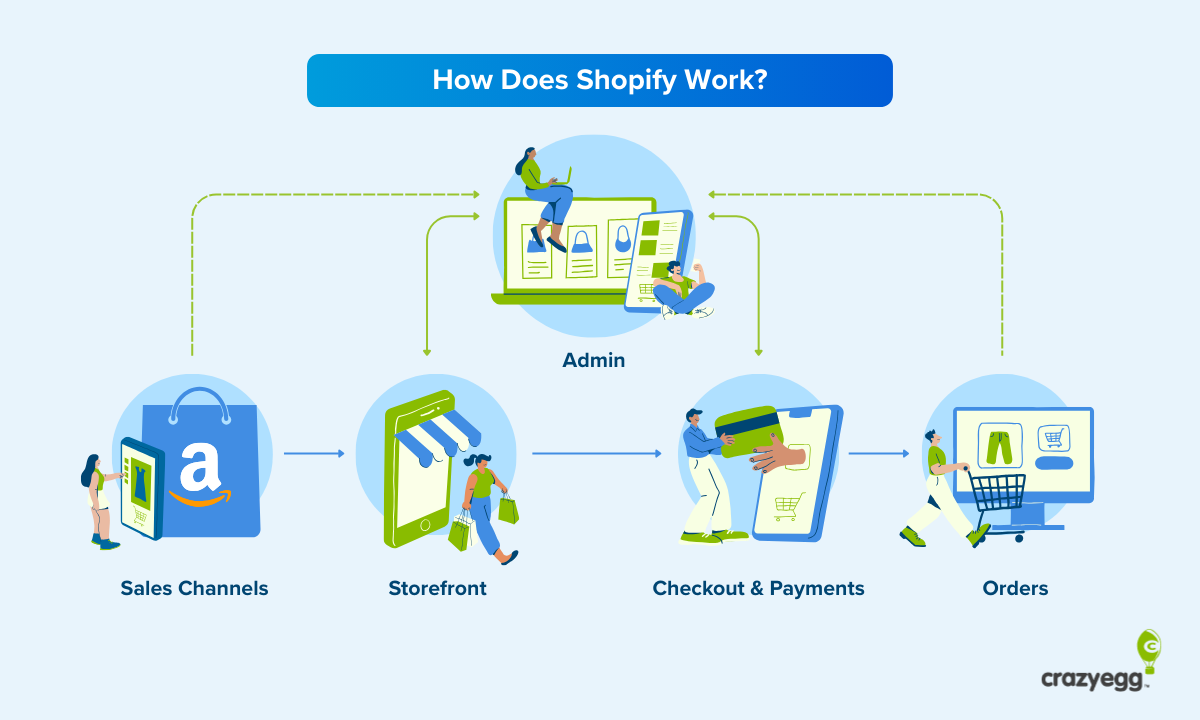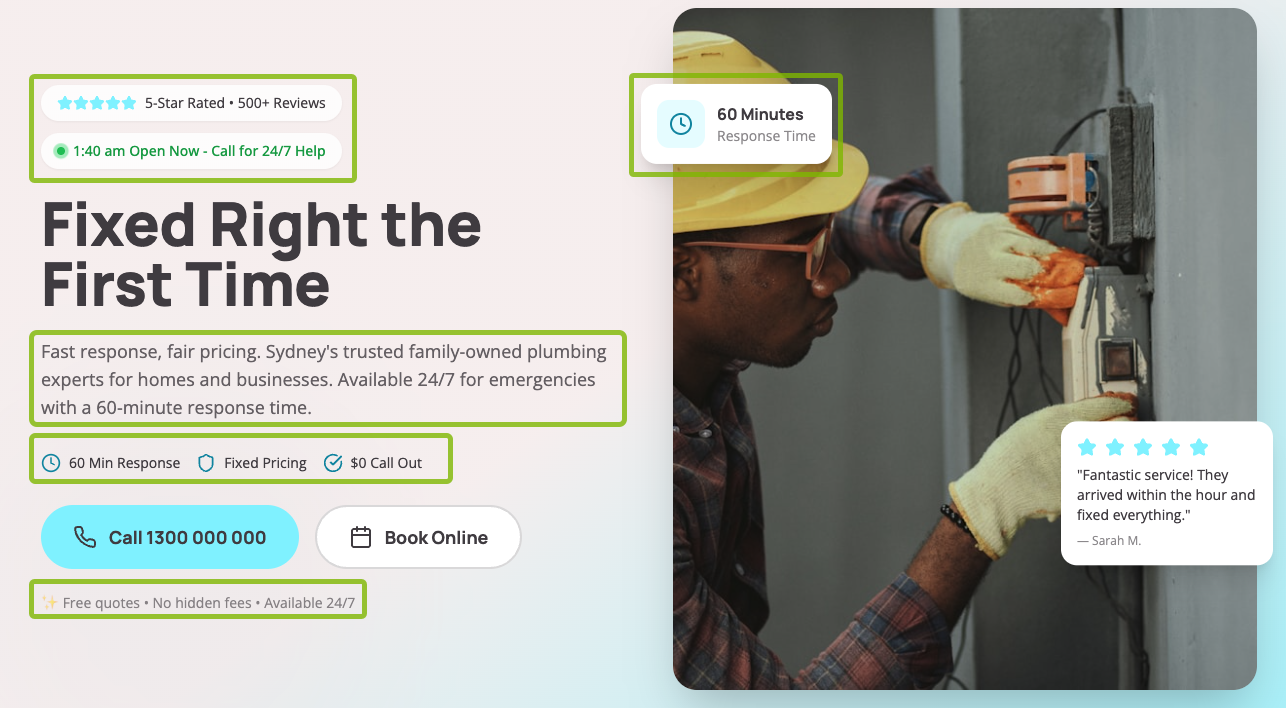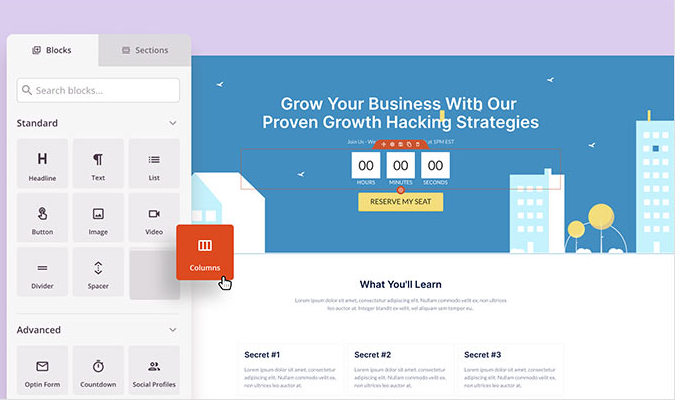Few brands live up to their name quite as well as Namecheap.
With new-customer .com promos as low as $6.49 for the first year and free domain privacy included on eligible domains, it remains one of the cheapest, most straightforward places to register a domain. Beyond domains, Namecheap also bundles hosting, email, a growing security suite, AI-powered site tools, marketing products like RelateSEO and RelateSocial, and even a Business Starter Kit where you can start an LLC for free through its partner (you still pay state fees)—covering nearly everything you’d need to launch a site and brand.
But just because you can buy everything in one place doesn’t mean you should. We wholeheartedly recommend Namecheap as a domain registrar, but we have reservations about most of its hosting and site-building products.
Read on to see where it shines—and where better options exist.

The Gist of Namecheap in Less than Five Minutes
First and foremost, Namecheap is a domain registrar—founded in 2000 and still best-in-class for buying and managing domains. The hosting, email, security, and formation add-ons came later to encourage bundling. While the first-year “free domain with hosting” deals are enticing, we don’t recommend keeping your domain with your host long-term. Treat your registrar and host as separate vendors to save money at renewal and to make host switching painless.
If your domain is currently parked with a web host, moving it to a registrar like Namecheap after the initial free year is smart. You’ll typically pay less at renewal and avoid the headaches that come with moving a domain and a site at the same time.
Meanwhile, budget hosting has gotten a lot better across the industry. If you’re mainly looking for speed, usability, and support without add-on upsells, you’ll usually get a better overall experience with Hostinger, Bluehost, or HostGator (see all of our top hosting picks here).
All three also include email options, basic marketing tools, and essential security features—so there’s rarely a need to buy those from your registrar unless Namecheap offers something very specific you want.
That said, Namecheap is an excellent place to buy and manage domain names. It’s inexpensive, quick, and refreshingly bare-bones in the best way. We keep our own domains at Namecheap for that reason.
If a clean, affordable domain experience is all you need, it’s a solid choice.
Namecheap: The Good and The Bad
Almost everything Namecheap sells is aggressively priced—shared hosting still starts around $1.98/month on promo, new-customer .coms can hit $6.49 for the first year (often limited to one per account/household), and domain privacy is included on eligible domains. But low prices aren’t the whole story. Here’s what we like—and where the value breaks down.
The Good
Trusted, long-running registrar: Namecheap has been around for 20+ years and is one of the largest registrars by total domains under management. If you want a registrar you won’t outgrow, this is it.
Domain privacy protection included: Every eligible domain you register or transfer includes privacy at no extra cost. Your personal contact info stays masked in public WHOIS records—something many competitors still charge for.

Great .com promos: New customers regularly see first-year .com pricing at $6.49 (often limited to one domain per user/household). Renewal rates are higher—as with any registrar—but Namecheap’s promos help you start for less.
Other extensions are inexpensive, too: There’s strong first-year pricing across popular TLDs (.org, .net, .co, .me, .app, and more), with competitive transfer and renewal rates.
Register up to ten years: Lock a name down for up to a decade on most TLDs so you don’t risk expiration or forget to renew.
Handshake domains (advanced/experimental): You can register blockchain-based Handshake names (e.g., .creator, .orb). They’re decentralized and privacy-friendly but require custom DNS resolvers to access—best for power users who know the trade-offs.

Aftermarket access without hassles: The Namecheap Market and domain auctions make it easy to buy existing names or bid on expiring ones. Inventory is large, search is fast, and filters make bargain-hunting manageable.
Pay with crypto: In addition to cards and PayPal, Namecheap supports cryptocurrency payments via account funds top-ups—handy if you prefer crypto rails.
Free brand tools: Logo maker, business-name generator, card templates, an AI site builder, and lightweight design tools are included. They won’t replace pro software, but they’re useful for quick mockups.
SSLs and security add-ons galore: If you need more than the basics, there’s a deep catalog—wildcard and multi-domain SSL, PremiumDNS, FastVPN, anti-spam, and cyber insurance—usually at lower prices than you’ll find elsewhere.

Very cheap shared plans (with real perks): Shared hosting promos still start around $1.98/month billed annually and include a free first-year domain plus up to 50 free 1-year PositiveSSL certificates that can auto-install across domains/subdomains you host (within the certificate limit). If sheer price is your #1 priority, Namecheap is tough to beat.
Free domain with hosting: Like many providers, your first year on most shared plans includes a free domain. Just remember to compare renewal pricing in year two.
Complimentary site migrations (with a guarantee): Namecheap offers hosting migrations with a guarantee to complete the move within 24 hours with no more than 15 minutes of downtime on eligible migrations. If they miss the guarantee (or the migration management falls short), they credit your account with the value of your first shared-hosting purchase (terms apply).
Plenty of dedicated servers: Dozens of configurations are available, with promo pricing often starting in the low $60s/month, plus optional management and control panels.
Beginner-friendly account management: A clean dashboard and simple controls make it easy to manage domains, DNS, and billing without developer chops.
Money-back safety net (hosting only): Shared and VPS plans come with a 30-day money-back guarantee for first-time purchases; dedicated hosting has a shorter window. Domains follow industry norms: new registrations are generally final, with limited exceptions based on registry rules.
The Bad
Chat-only support can be slow: The knowledge base is solid, but there’s still no phone support. Live chat is 24/7, though responses during a session can lag, and escalations may take awhile. If you value quick, human phone help, this is a miss.
Entry-level shared plans feel tight: The cheapest tier still caps storage at 20 GB and leans on introductory freebies (like the included PositiveSSL certificates being 1-year promo certificates). You won’t get many managed WordPress niceties out of the box, and onboarding is more cPanel-centric than beginner-friendly hosts like Hostinger or Bluehost.
Upsells on VPS/dedicated can erase the savings: Base VPS pricing looks great, but adding cPanel, Webuzo licensing, and managed services can tack on significant monthly cost. By the time you add those, similarly-priced alternatives can deliver better performance and tooling.
Website builder is still basic: The AI features help, but design flexibility and templates lag behind best-in-class builders you get bundled from top hosts.
Focus is spread thin: Namecheap’s energy goes into many side products (security, DIY tools, monthly promos, business formation). That breadth is great for value shoppers, but it means hosting polish and support depth aren’t the company’s core strengths.
You can get better hosting for a similar price: Spend a dollar or two more per month with a host that prioritizes hosting, and you’ll typically see better performance, staging tools, and support.
Namecheap Plans and Pricing
Here’s what Namecheap offers right now, plus what to watch for at renewal.
Namecheap Hosting
Shared & WordPress (EasyWP): Shared hosting promos often start around $1.98/month billed annually. The entry plan includes 20 GB SSD storage, unmetered bandwidth, a free first-year domain, and up to 50 included 1-year PositiveSSL certificates that can be auto-installed for domains/subdomains you host (within the certificate limit). EasyWP gives you one-click WordPress setup; the Starter plan often includes a free first month and then renews at $9.88/month on the monthly plan. Renewal prices on both shared and EasyWP are much higher than teaser rates, so always check year-two costs and compare to competitors.
Reseller hosting ($19.88–$58.88/mo): The Nebula, Galaxy Expert, and Universe Pro tiers include WHM, 25–150 cPanel accounts, unmetered bandwidth, and support for unlimited domains/subdomains. WHMCS and similar tools remain add-ons.
VPS hosting (unmanaged, promo from ~$6.88/mo): Pulsar, Quasar, and Magnetar plans are affordable but unmanaged—you pick the OS and handle server care. You can add Webuzo or cPanel for a monthly fee and bolt on managed support if you want. Once those are added, pricing gets close to fully managed VPS from hosts that specialize in it.
Dedicated servers (from promo prices in the low $60s/mo): Multiple configurations with no-frills pricing. As with VPS, control panels and management are extra; compare the final managed price to alternatives before you commit.
Free migrations with a guarantee: Hosting migrations are backed by a guarantee to complete within 24 hours with no more than 15 minutes of downtime on eligible migrations. If the guarantee isn’t met (or you’re not satisfied with how the migration was handled), Namecheap credits your account with the value of your first shared-hosting purchase (terms apply).
Refunds and renewals: Shared and VPS hosting include a 30-day money-back guarantee for first-time purchases; dedicated hosting has a shorter refund period. Domains generally aren’t refundable after purchase except for narrow windows set by registries. Always check the renewal line in your cart—Namecheap’s promos are real, but renewals are where costs diverge across providers.
Expanding Your Knowledge: Namecheap
Is Namecheap good for web hosting?
It’s okay for simple sites, blogs, and portfolios—especially if you want the absolute lowest first-year cost. The trade-offs are chat-only support, fewer managed features, and add-on costs for things like cPanel on VPS. For just a bit more per month, many users are happier on hosts like Hostinger, Bluehost, or HostGator. If cost control is your top priority, Namecheap’s shared plans are genuinely inexpensive and come with a 30-day money-back guarantee so you can test without much risk.
As a domain registrar, though, Namecheap is excellent—low prices, privacy included on eligible domains, business formation tie-ins, and simple DNS management.
Is Namecheap good for domain registration?
Yes. Namecheap consistently offers some of the best first-year prices across popular TLDs and includes domain privacy at no extra cost on eligible extensions. That privacy masks your personal details in WHOIS, protecting you from spam and unwanted solicitations. Transfers in are straightforward, and the aftermarket makes upgrading names easier than most registrars.
Why are Namecheap domains so cheap?
First-year promotions (especially for new customers) are the main reason—registrars and registries use promos to compete for new registrations. Renewal pricing is where costs normalize, so always check the renewal rate for year two and beyond. Namecheap usually remains competitive at renewal, but the jump from the promo is real.
It also helps that Namecheap keeps domain registration lean and lets you skip extras. You can buy just the domain and call it a day.
Is Namecheap better than GoDaddy?
For domain registrations and straightforward pricing, we give Namecheap the edge—fewer upsells and lower first-year costs, with privacy included on eligible domains. GoDaddy’s builder is stronger and they offer phone support, which some users prefer. For hosting, we still lean toward hosts that focus primarily on hosting rather than registrars that also host.
Is Namecheap legit?
Yes—Namecheap is a long-standing, reputable domain registrar and web hosting provider with millions of customers worldwide and millions of domains under management. In 2025, CVC Capital Partners agreed to acquire a majority stake in the company while founder Richard Kirkendall retained a significant ownership stake and continued in leadership, and day-to-day services have continued as normal.
Comparing The Best Web Hosting Services
Namecheap is a standout for transferring existing domains, registering new ones (with privacy included on eligible domains), accessing a broad aftermarket, tapping into its Business Starter Kit bundle, and paying the way you want—including with crypto. As a host, it’s cheap but not our favorite for long-term growth.
We prefer Hostinger, Bluehost, or HostGator for hosting—but you can compare all of our top web hosting picks here and choose what fits your needs best.






